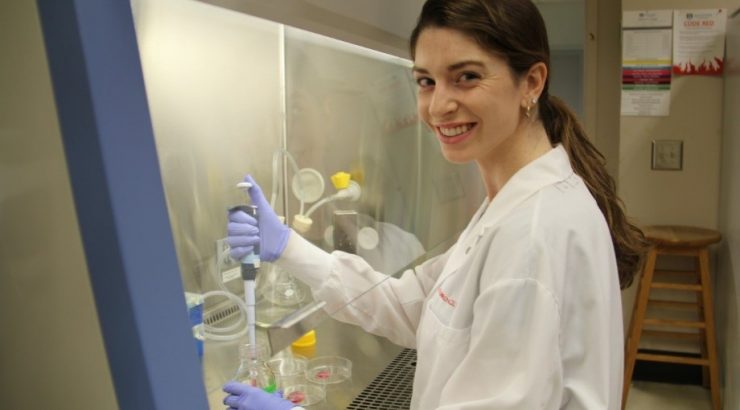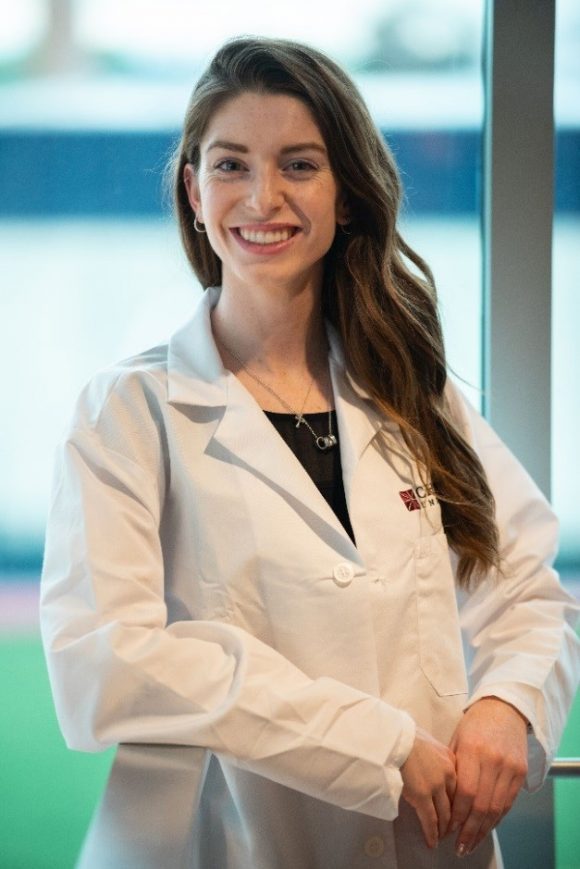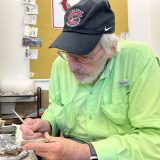
The STAR Program Experience Riley Kendall shares her summer research experience at Augusta University
July 18, 2019
 Riley Kendall is a senior biochemistry and molecular biology major, minoring in computational neuroscience. At Chapman, she has served as the public relations officer for Chapman’s American Chemical Society (ACS) chapter, led a small group for the Intervarsity Christan Fellowship, been an active member of the Schmid Student Leadership Council (SSLC), and helped in the fight against human trafficking with Chapman’s Free Them Coalition. In addition, she works in Dr. Jerry LaRue’s lab conducting biochemical research.
Riley Kendall is a senior biochemistry and molecular biology major, minoring in computational neuroscience. At Chapman, she has served as the public relations officer for Chapman’s American Chemical Society (ACS) chapter, led a small group for the Intervarsity Christan Fellowship, been an active member of the Schmid Student Leadership Council (SSLC), and helped in the fight against human trafficking with Chapman’s Free Them Coalition. In addition, she works in Dr. Jerry LaRue’s lab conducting biochemical research.
This summer, Riley had the opportunity to participate in Augusta University’s Student Training And Research (STAR) Program in Georgia. For 9 weeks, she conducted biomedical research alongside Dr. Meghan McGee-Lawrence.
Riley shared with us her research project and what she has learned from the experience.
Q&A with Riley
Q: Tell us about your STAR Program project.
RK: “For my summer research project, I am studying osteoblasts in controlled, in-vitro conditions. By removing cells from mice and examining them in a cell-culture dish, I am gaining a greater understanding of how fat-containing osteoblasts work and can specifically investigate what these cells do, what they make, and how they respond to certain challenges and stresses. The research I am doing is a part of a bigger project focusing on investigating the role of bone marrow fat in bone loss that occurs with age.”
Q: What have you learned so far?

Riley Kendall with her summer research team at August University.
RK: “So far, I have learned a lot about how to grow, control, and manipulate cells in cell culture. I never took microbiology before, and so this process is entirely new to me. I’ve come to find that I really enjoy the technique. It is both relieving and satisfying when I check up on my cells after overnight incubation and find that they are healthy and growing!
The STAR Program at Augusta also provides weekly workshops for us to attend. In these workshops, we learn about new scientific discoveries, practice lab techniques, and gain information about programs and careers in science. As someone interested in graduate school, these workshops have given me a greater understanding of what life as a Ph.D. candidate entails and what avenues I can explore with my degree.”
Q: How has your Chapman experience prepared you for this opportunity?
RK: “Practically, I’m utilizing a lot of techniques that I was first taught in my labs at Chapman, like Western Blotting and PCR. But also, Chapman has been key in encouraging me to reach out and introduce myself to others confidently, a skill essential for networking. Through attending Schmid networking events, conversing with professors, and representing science-based clubs like ACS and SSLC, I have learned how to clearly explain my scientific background and goals to others. These communication skills have been especially helpful in representing myself professionally at Augusta and have opened up doors for more shadowing opportunities at the hospital and other labs.”
Q: What advice do you have to offer Schmid students who are looking to apply to research programs for the summer?
RK: “Apply to as many programs as you can! I completed my applications over Interterm when I had more time to find programs and apply. Most likely, you won’t get accepted into every program you apply to. But the more you apply to, the higher chance you have of being accepted into one. I applied to a large pool of programs and was fortunate enough to get accepted into more than one, giving me options. So, I would definitely recommend others do the same and consider applying to many research programs, as opposed to just a few.”
Riley offered to be a resource to any students with questions about summer research experiences. You can email her or connect with her on LinkedIn.
